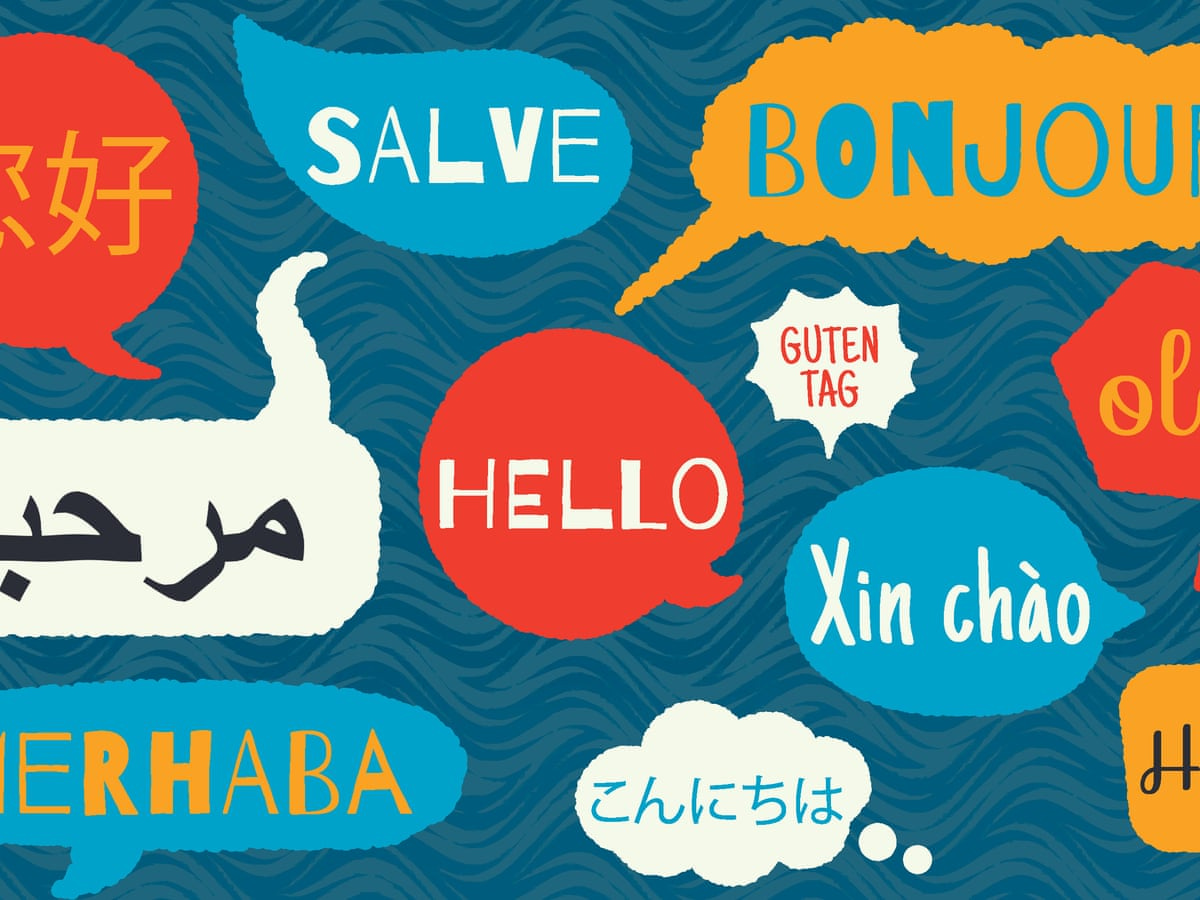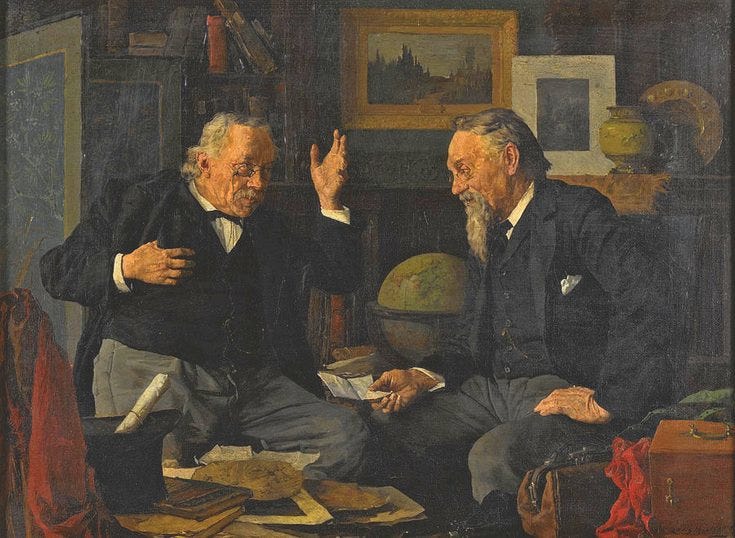Introduction:
Dear Reader,
I have always loved learning languages. Since I was little, about ten years old, the love for them has burned inside me. I began learning languages at this age online on any sites I could find in order to practice Spanish. I have no recollection of why I was suddenly drawn to languages, or exactly how much I planned to stick with them, but so did the fire begin to burn. Every day I would be annoyed if I did not learn some new words or practice them.
In primary school I would tell my teacher how much Spanish I had learnt and I would always investigate the words around the classroom in different languages to figure them out, expanding the vocabulary in my head. In the few language classes we had at this young age I always tried my hardest - though it is unlikely I could actually walk the walk back then (or talk the talk, really).
Everything changed when, at age 11, my mother signed me up for private Spanish tuition since I enjoyed it so much. I did this for a few years and quickly improved in comparison to what I was doing. I was also able to change languages in high school from French to Spanish after the cut-off, to study the language in school and sit the exams, to the shock of my new classmates when I strode into the classroom for the first time (sadly late, which meant I had to explain I had not walked into the wrong place).
Since then, having left school entirely and entered into adulthood, I have been learning Russian for several years now, allowing that language to bless me with its mystery and intrigue, giving Spanish a companion.
Since then languages have truly shaped me and who I am, and I enjoy every second of improving my linguistic skills. It is something I would have greatly missed out on should I have never begun to learn them with a tutor all those years ago.
I even remember once, having been a child, becoming tired of the lessons and thus demanding to my mother that I stop them, but she refused, and I am so glad that she did.
I do not wish to brag or show off, besides, my story is not very extraordinary, but I just wanted to share my language-learning adventure with you all, because (those of you that study languages will know) the experience truly is a roller-coaster ride of great excitement and has become a huge part of my life which I would certainly be far less of myself without. I simply hope to encourage everyone else to embark on their own journey as well, because mine was hugely worth it.
In this post I cover the reasons why, personally, I believe that the common methods of learning a language today are flawed, why everyone should study a foreign language and what makes it so great and rewarding an endeavour, and far more fun than you ever thought.
Part 1: What learning languages is like
Common ways of learning languages and their effects
I see a repeat occurrence in state education that people who attend school come out with a hatred of certain subjects, having been forced to learn them though they hate them, or learning them in laborious, complex ways. This is most often seen with things like books, which are often taught for us to analyse for essays but never for our own meaning, and languages, which is the offender I wish to discuss, because we are simply taught to memorise lists of words without rhyme or reason.
It might come to no surprise at all to you if I said I believe you simply cannot learn a language at school. Well, you can, but not with the way they currently teach them. In school we move onto different topics in what is perhaps a specific order, simply writing lists of new words that we cram for tests and listening exercises but only to forget them straight after and never actually use in a conversation in a foreign language - what is the point? It is akin to endlessly studying chords on the guitar but never actually playing a piece of music. From this futile exercise two things can happen. You either begin hating foreign languages for their apparent arduous and boring nature, or believe that you are no good at learning languages and simply not smart enough so you never try again.
Secondly is the other path which people take, which is subscribing solely to some app online and putting all of their faith into it to teach them everything a language has to offer because they have seen it advertised that it teaches languages (spoiler alert: they never work on their own). But, even after a 547 day streak and completing several modules, after so long on the account they are stuck on: “How are you? My house is red. I have a pet dog. I ate fish for dinner.” It seems again like languages are just an impossible feat or that you are not good enough at them.
I have come here today to say that neither of these ideas are necessarily true, and that the terrible school system and apps that tried to teach you languages are actually the result of this attitude. You can, if you believe me, very easily begin to learn a foreign language, all the while making real progress, and thoroughly enjoy the process!
Don’t believe me? Keep reading on to see how I learn languages which I greatly enjoy and further on where I explore the great impacts learning a foreign language can have on your life, you can trust me because I have experienced them myself, and maybe afterwards I can entice you to give languages another go.
What learning languages can be like
In the 21st century, we must always keep in mind that it is the easiest it has ever been to learn a new language. In the past, we would have been confined to a few limited books, by finding a teacher who you had to see at regular intervals or otherwise throwing yourself headfirst into a foreign country. None of which may work especially well. In the modern day we can listen to, read and translate our target language all the time and whenever we want, and speak to native speakers nearly all the time. We are not tied down to a teacher’s schedule or what a book tells us, the information is at our fingertips.
That is why I believe the best way is to do it alone - it is not only the cheapest, but the easiest, most efficient method and what will arguably teach you much more or the same than paying for a teacher, though knowing someone who speaks the foreign language fluently and having a teacher to refer to every now and again would never hurt.
Although I have had tutors for both Spanish and Russian, and I would say that it is a viable path for beginners, I have realised that it is possible to learn a language on your own much more easily, it just takes more initiative. Keep in mind that all of the information you need is on the internet already, completely for free. I study and constantly improve my Russian and Spanish and do not pay a thing anymore.
The way I learn is by following a simple rule: live the language. By that I mean: read, speak, listen and write anything you can in your target language whenever you can, just learn and absorb it in every way you can - this is something modern technology affords us. One day I might watch lots of Russian conversations, read some simple texts, listen to some Russian music, write a little, and all the while looking up the words I do not know. The key is to really use your foreign language, not just to study lists of words as school teaches us, but actually use the words and be flexible with it, living the language not studying it, slowly building up vocabulary all the time. Do whatever methods suit you, remember that, though there will be challenges and frustrating parts, learning languages should be enjoyable, not a chore.
There is a wellspring of language information out there that all we need to do with is take a sip from and we can make progress. I would even recommend free apps like Duolingo, but only if they are used alongside your main study, as they will never teach you a language on their own.
Part 2: Personal benefits of learning a new language
Develop a new personality
Though this sounds crazy, I have lived the experience of having different personalities when I speak in foreign languages, and science seems to back up phenomena like these too.
Or according to the Czech Proverb:
“Learn a new language and get a new soul.”
In Russian I am more talkative and jokey, and in Spanish I am more matter-of-fact, but in both of them I am more confident than in English. This might seem strange for someone that only speaks one language, but it really is an experience. The increased confidence may be explained simply in that, though I understand when people talk to me in foreign languages, the words have no real weight, I just learnt them in a lesson or from a computer screen, not in real life situations.
A real example is that my friends and I were discussing Sigmund Freud’s theories once (yes, the obvious ones) and though I would be shy to say them out loud in English, when I explained what we were saying to the Spanish girl sat near us (though petrified she was) I did not hold back in saying exactly what Freud’s beliefs were about sons and their mothers and daughters and their fathers. Still, it was strange to leave my lips, but the words simply have less meaning and weight coming out of my non-native mouth.
Science has also shown that people who speak a foreign language tend to be more rational, less biased and less emotional. One article from The Guardian posits that, should you need to act analytically and not emotionally, it would be worth studying another language to switch to in these moments of need, and that, many scientists believe, the new boundaries of a different language, with new rules and concepts, make you view the world in a different light. Maybe it is worth opening a business in a foreign country, you might be a better business man there, using a foreign language, than in your home country.
The article notes:
“As Vladimir Nabokov revised his autobiography, Speak, Memory, he found himself in a strange psychological state. He had first written the book in English, published in 1951. A few years later, a New York publisher asked him to translate it back into Russian for the émigré community. The use of his mother tongue brought back a flood of new details from his childhood, which he converted into his adopted language for a final edition, published in 1966.
‘This re-Englishing of a Russian re-version of what had been an English re-telling of Russian memories in the first place, proved to be a diabolical task,’ he wrote. ‘But some consolation was given me by the thought that such multiple metamorphosis, familiar to butterflies, had not been tried by any human before.’”
People seem different in their native languages, more emotional and deep.
Though this is of a different hue, it is almost something I cannot fully describe that when I go outside after a long stint of language-learning, the world seems no longer as small as it used to be, and that I have changed within it, and that I can describe it and talk about it in different ways with increased strength and complexity because of the world this language has opened up for me. Languages change your brain in complex and intriguing ways.
Personality shifts could simply be the way you interpret the culture of the language you are learning, some complex psychological matter, or the distance of a speaker from the words and their impact which makes non-natives more confident. Nonetheless, it is a unique experience which makes language learning a deeper, far more intriguing area of study.
Intellectual and health benefits
Apart from the benefits of developing a new personality and increased confidence when you learn a foreign language, there are several documented benefits to your overall intelligence, and even your health, as well.
According to the Cambridge University Press, the brain of bilingual people is greatly strengthened in comparison to those who are monolingual. The increased benefits range from better academic performance, improved concentration, a more powerful memory, a decreased risk of illnesses like Alzheimer’s, stronger communication skills and increased creativity.
If learning a language boosts performance in such drastic ways, surely learning a language not only improves your brain but improves your life as a whole as well. Learning a language is like a workout for the brain. What reason is there not to learn one?
Specifically concerning Alzheimer’s, John Grundy, author of Does Bilingualism Protect Against Dementia? A Meta-analysis, said this in an interview by Iowa state university concerning the link between bilingualism and improved brain health in terms of diseases like dementia and Alzheimer’s:
“‘Alzheimer’s disease places a significant burden on the health care system. It’s extraordinarily expensive,’ Grundy said. ‘The importance of doing the study was inspired by how we can inform people of ways to remove a little of the burden from the health care system.’
He believes bilingualism may be part of the answer. Learning a second language is difficult and makes the brain work harder. Using multiple languages challenges the mind, creating new neural pathways when others begin to fade with age.
‘Think about taking a new path home,’ Grundy said. ‘The first time you take that path it’s going to be difficult to remember it, and maybe that’s true the second and third time. But eventually, it gets easier, and you then have multiple pathways to get to the same outcome. You can think about bilingualism like that as well.’
So, is there hope for monolinguals climbing the steep hill of middle age to still combat the onset of dementia? Grundy thinks so.
‘The good thing is it’s never too late, and there are protective benefits of bilingualism and other factors, even at later ages in life,’ Grundy said. ‘Anything that shocks your system, not just bilingualism, but anything that is a change in your routine is a good thing. Start writing with your left hand, take a different path home, anything that challenges your brain in a way that allows you to become more efficient over time leads to multiple networks and pathways to get to the same outcomes.’”
Have great fun
The evidence for the benefits of learning a language seem self-explanatory as to why they are a great pursuit. But as of yet we have not covered the immediate benefits, though I am no hedonist, of wonderful happiness you feel as you learn.
Breaking away from the arbitrary and arduous nature of painful school routines or pointless language apps, you can officially attack language-learning with your newfound zeal of diving head-first into the language, watching, listening, reading and writing, which, if nothing else, provides a profound sense of joy and achievement as you see yourself slowly progressing up the language-learning ranks.
Though there will be frustration - not understanding things when you think you should by now, forgetting words you learnt, complex grammar rules, complex grammar rules?, COMPLEX GRAMMAR RULES?! - it will almost always be outweighed by your positive advances.
For me, the joy of language learning comes if I visualise it like a puzzle or like a Christmas calendar, the more I learn, even if just for ten minutes today, adds bit by bit to my knowledge and thus pieces together the entire image of the language or opens the locks of new parts of it, which I can use in the real world right now. New words and phrases are like finding more and more new places on a quest, which make you grow as you discover them. Learning languages is an adventure, embark on it, pillage it all, and enjoy it thoroughly.
Part 3: Social benefits of learning a new language
Grow as a person and expand your horizons
With a language under your belt, the opportunity for you in the world is magnified a thousand fold. Being able to communicate with different people and understand new cultures not only makes you a smarter, more well-rounded person, but also gives you heightened opportunities to travel (as you can navigate your way through parts of the globe where no English is spoken), gives you the chance to speak to people you never would have before, make new friends and offers you increased job opportunities in more places because you speak a different language. Learning a language opens up all these doors.
Of course there is always the argument that language-learning is far less valuable today because smartphones can translate what you want to say immediately and extremely easily, without you having to spend years mastering a language. While these translation apps are great, they can never really be used in an efficient way. You may be able to order food or ask directions on an app but to form long-term friendships and truly relate to people, go to dinner with them, get close to them, you could never rely solely on your phone, you need to speak their language to truly be present and be able to create extended relationships with people. No one would become best friends with someone or marry someone who only speaks their languages through google translate. Learning the language yourself is important to actually live in and experience these new places and the people there. For transactional, short conversations, phones are great. For the longer, more invested, deeper stuff, you want to be able to really connect.
Furthermore, in a job located offshore, of course, no one would give the job to a guy who just boasts trusty google translate, and does not himself understand the complexities of the language he is required to speak.
For these reasons, combined with the several other benefits I have listed above, I believe language learning is a great and worthwhile endeavour for anyone willing to improve themselves all the while having great fun.
Conclusion:
In conclusion, I hope from this post you now understand my argument as to why everyone ought to learn a foreign language, or even just experiment with one, and understand all the reasons I give: from improved social skills and health benefits, all the way to simply having lots of fun. Learning a foreign language can add bucket-loads of wealth to your life.
Combined with the knowledge that common methods of language-learning are rubbish, I hope that this post inspires you, at least a little bit, to pick up that sword one more time and give languages another whack for yourself, just to see what happens. You might love it.
I have been learning languages for so many years now I would surely be much less of who I am today had I never discovered them, I hope you can make the same discovery too.
With all that in mind, if we all begin studying languages once more, once and for all I believe that, to quote a poster my sixth form Spanish teacher had on the wall of his office: “Monolingualism can be cured!” and so it should.
After all, despite all the difficulty and high amount of hours that the study of languages can require you to go through, I have never met anyone that said they regretted learning a language. It is always quite the contrary. If anything, I hope that this sticks in your mind.
Finally,
¡Gracias por leer este artículo!
До свидания,
The Everything Scholar







This has inspired me so much! “Monolingualism can be cured!”
I took Latin and Spanish, but have not updated what I recall. It means a lot to people when you speak in their language as a way of respect. “to speak their language is to be fully present” So many are grateful for mutual conversational recognition. “No one would become best friends or marry someone who only speaks their language through google translate.”;)
My son is fluent in Spanish and it has been helpful in his career. My first introduction was about the age of five when a few of us sat in our tutor’s backyard and heard her eloquent Castillian Spanish melodically flow through our young ears. She was a former Miss Argentina, an elegant, kind individual.
Communal connectivity comes from interaction. To converse respectfully bonds us. It elevates a friend to parity, not dismissiveness.
Your enthusiasm is contagious! Thank you!